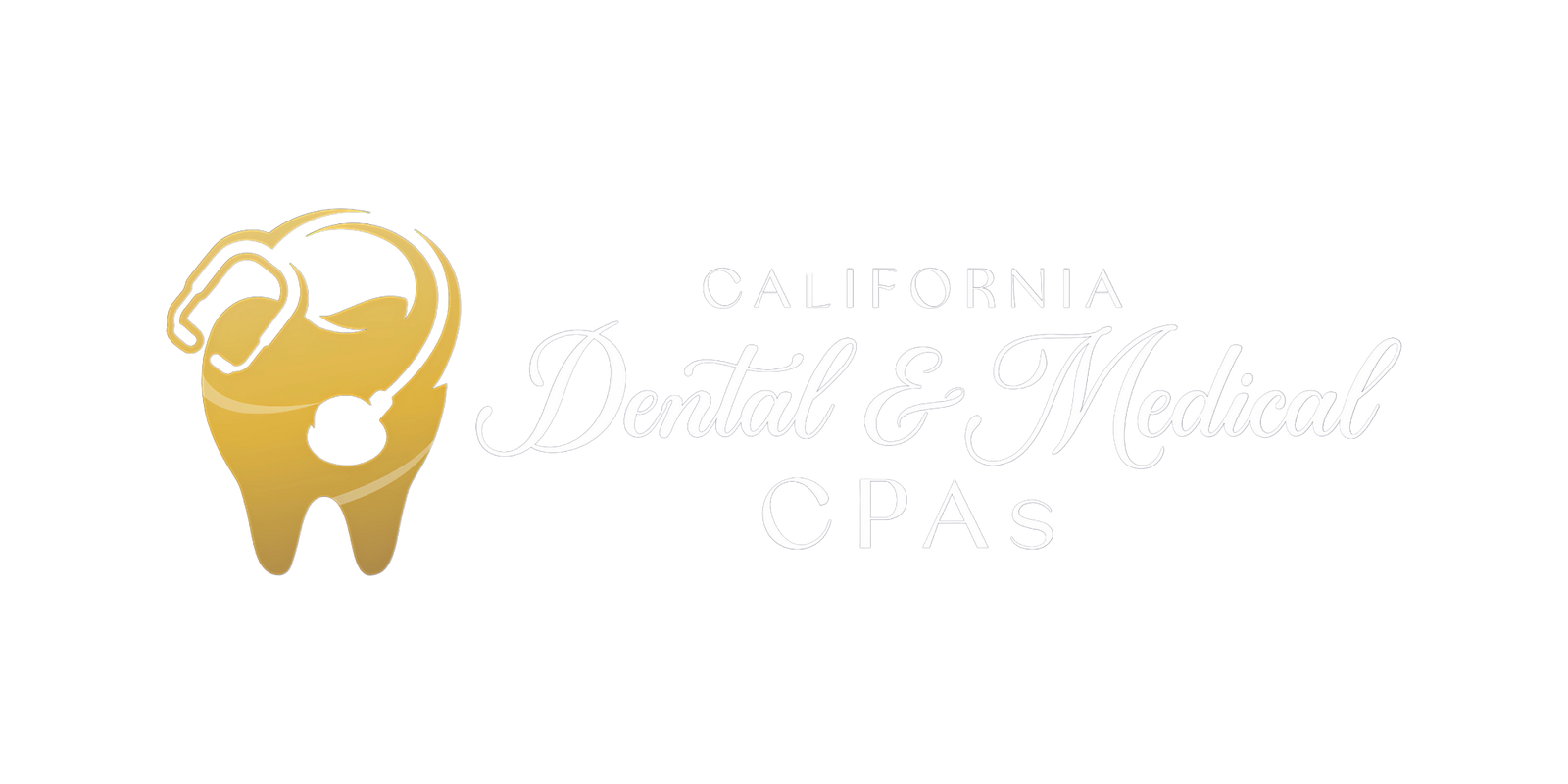Managing finances as a healthcare professional can be tough. Doctors and dentists juggle patient care, staff management, and a host of other responsibilities. On top of that, they face unique financial challenges that require specialized knowledge. This is where a healthcare accountant comes in. They help navigate the complexities of healthcare finances, ensuring that practitioners can focus on what they do best—caring for patients.
Key Takeaways
- Healthcare accountants understand the specific financial challenges faced by doctors and dentists.
- They provide tailored tax strategies that can save you money on deductions you might miss.
- A healthcare accountant helps ensure compliance with ever-changing regulations, reducing the risk of penalties.
- By streamlining financial processes, they can help increase your practice’s profitability.
- Investing in a healthcare accountant can lead to better long-term financial management and planning.
Introduction: The Financial Challenges of Healthcare Professionals

Why Dentists and Doctors Face Unique Money Problems
Healthcare professionals, like dentists and doctors, often encounter financial complexities that differ significantly from other industries. One major reason is the intricate nature of billing and insurance reimbursements. Unlike retail businesses with straightforward pricing, healthcare providers deal with a myriad of insurance plans, each with its own set of rules, co-pays, and deductibles. This can lead to delayed payments and revenue cycle issues.
Another challenge is managing high overhead costs. Medical and dental practices require expensive equipment, specialized supplies, and a skilled workforce. These costs can quickly eat into profits if not managed effectively. Furthermore, the ever-changing regulatory landscape adds another layer of complexity. Compliance with healthcare laws, such as HIPAA, requires ongoing investment in training and technology. All these factors combine to create a unique set of financial hurdles for dentists and doctors.
How a Healthcare Accountant Solves These Issues
A healthcare accountant brings specialized knowledge to the table, offering solutions tailored to the unique financial challenges faced by medical and dental practices. They understand the intricacies of healthcare billing, coding, and compliance, which allows them to optimize revenue cycles and minimize errors. By carefully analyzing financial data, a healthcare accountant can identify areas where costs can be reduced and profits can be increased.
A healthcare accountant can also help with tax planning, ensuring that you take advantage of all available deductions and credits. This can result in significant tax savings, freeing up more capital for investment in your practice.
Moreover, they can assist with financial forecasting and budgeting, providing valuable insights into the future financial health of your practice. With their guidance, you can make informed decisions about investments, expansions, and other strategic initiatives. Here are some ways they help:
- Optimizing Revenue: Streamlining billing processes to ensure timely and accurate payments.
- Reducing Costs: Identifying areas where expenses can be cut without compromising patient care.
- Ensuring Compliance: Keeping you up-to-date with the latest healthcare regulations and tax laws.
What Makes a Healthcare Accountant Essential for Your Practice?

Expertise Beyond General Accounting
General accountants are good, but healthcare accountants? They’re built different. They understand the intricacies of the medical world. We’re talking about things like patient billing, coding regulations, and the ever-changing landscape of healthcare finance. A healthcare accountant brings specialized knowledge that a general accountant simply doesn’t possess. They know how to handle the unique challenges that come with running a medical or dental practice.
Why Dentists Need a Healthcare Accountant for Compliance
Dentists face a unique set of compliance hurdles. From navigating insurance reimbursements to adhering to strict regulations, it’s a lot to handle. A healthcare accountant specializing in dental practices can help you stay on top of it all. They can assist with:
- Tracking income and expenses accurately.
- Preparing for audits and providing necessary documents.
- Ensuring compliance with all relevant tax laws.
A healthcare accountant helps dentists avoid costly penalties and maintain a healthy financial standing. They understand the specific financial challenges that dental practices face and can provide tailored solutions.
With a healthcare accountant, you can focus on providing quality care to your patients, knowing that your finances are in good hands. They offer specialized bookkeeping, accounting, and tax services for dental and medical professionals.
Tax Benefits You’re Missing Without a Healthcare Accountant

Healthcare Accountant Specializing in Medical Tax Deductions
Many doctors and dentists miss out on significant tax deductions simply because they aren’t aware of them. A healthcare accountant knows the ins and outs of the medical field and can identify deductions you might overlook. For example, did you know you could deduct expenses for continuing education? Or that a portion of your home office could be deductible if you meet certain criteria? A healthcare accountant ensures you claim every legitimate deduction, reducing your overall tax liability.
Tax Strategies from a Healthcare Accountant Near Me
Finding tax strategies from a healthcare accountant near me can be a game-changer. It’s more than just plugging numbers into tax software. A local healthcare accountant understands state-specific regulations and can tailor strategies to your unique situation. They can advise on entity structure, retirement planning, and even strategies for managing student loan debt in relation to your taxes.
A healthcare accountant can help you develop a proactive tax plan, not just react to last year’s income. This forward-thinking approach can save you money and reduce stress.
Boosting Profits with a Healthcare Accountant for Dental Practices
Here’s a quick look at how a healthcare accountant can help:
- Maximize Deductions: Identify all eligible deductions specific to dental practices.
- Optimize Tax Planning: Develop strategies to minimize tax liability.
- Ensure Compliance: Stay up-to-date with changing tax laws and regulations.
For example, CA Dental & Medical CPA offers financial solutions for 1099 contractors in the dental and medical fields. They address the challenges of managing finances, including complex tax regulations and bookkeeping, to help clients maximize deductions and minimize taxes. Their services aim to provide financial peace of mind for independent contractors. Understanding their classification is essential for tax purposes, including the use of taxpayer identification numbers (TIN) and tax-exempt bonds. Don’t forget about Form 8995-A used to calculate the qualified business income (QBI) deduction, including specific schedules for detailed instructions.
Boosting Profits with a Healthcare Accountant for Dental Practices
Streamlining Finances for Dentists
Running a dental practice involves more than just providing excellent patient care; it requires a keen understanding of financial management. A healthcare accountant for dental practices can help streamline your finances by implementing efficient bookkeeping systems, managing cash flow, and providing clear financial reports. This allows you to focus on your patients while having a clear picture of your practice’s financial health. Regular financial statement reviews are important. Many healthcare professionals only look at their tax benefits once a year when their accounting firm requests financial data for tax preparation.
Real Savings on Overhead Costs
One of the most significant benefits of hiring a healthcare accountant for dental practices is the potential for real savings on overhead costs. By carefully analyzing your expenses, a specialized accountant can identify areas where you can cut costs without compromising the quality of care. This might involve renegotiating vendor contracts, optimizing staffing levels, or implementing energy-efficient practices. These savings directly translate into increased profits for your practice.
A healthcare CPA brings value to the practice. Payment for a healthcare CPA should not be perceived as overhead—it’s an investment. Because at the end of the day, you’re helping that practice make money.
Here are some ways a healthcare accountant can help reduce overhead:
- Negotiating better rates with suppliers.
- Identifying and eliminating unnecessary expenses.
- Optimizing tax deductions to reduce your overall tax burden.
- Improving billing and collection processes to minimize revenue loss.
How a Healthcare Accountant Keeps You Compliant
Navigating Healthcare Regulations with Ease
Healthcare regulations are complex, and staying compliant can feel like a full-time job. A healthcare accountant understands these regulations inside and out. They can help you navigate the ever-changing landscape of HIPAA, Stark Law, and anti-kickback statutes. This knowledge is critical for avoiding costly mistakes and ensuring your practice operates ethically and legally. A healthcare accountant provides the guidance you need to stay on the right side of the law.
Avoiding Costly Penalties for Doctors and Dentists
Non-compliance with healthcare regulations can lead to significant financial penalties, audits, and even legal action. An accountant for healthcare professionals cost savings helps you implement systems and processes to minimize these risks. They ensure accurate coding, proper documentation, and timely reporting, reducing the likelihood of errors that could trigger an audit.
Think of a healthcare accountant as your compliance shield. They proactively identify potential issues and implement solutions to keep your practice protected.
Here are some ways a healthcare accountant helps avoid penalties:
- Ensuring accurate financial reporting.
- Implementing internal controls to prevent fraud.
- Staying up-to-date on regulatory changes.
Ignoring compliance can be a costly mistake. Don’t wait until it’s too late. Understanding why dentists need a healthcare accountant for compliance is crucial for long-term success.
Why Choose a Specialized Healthcare Accountant?

It’s tempting to think any accountant can handle your finances, but healthcare is a different world. A healthcare accountant specializing in medical tax deductions understands the unique challenges and opportunities in your field. Let’s explore why choosing a specialist can be a game-changer for your practice.
Industry Knowledge That Saves You Money
General accountants might miss deductions specific to the medical field. A dental practice accountant knows about things like specialized equipment depreciation, research credits, and other industry-specific tax breaks. This knowledge translates directly into savings. They understand the nuances of your profession, from billing to compliance, and can identify opportunities to minimize your tax burden.
Personalized Support for Your Practice
Your practice isn’t just a business; it’s your livelihood and a vital part of the community. A specialized accountant offers personalized support tailored to your specific needs and goals. They can help with:
- Tax planning strategies designed for doctors and dentists.
- Financial forecasting to help you make informed decisions about investments and expansions.
- Compliance with medical and dental expenses regulations to avoid costly penalties.
Working with a healthcare accountant is like having a financial partner who speaks your language. They understand the pressures you face and can provide the support you need to thrive.
Choosing a healthcare accountant specializing in medical tax deductions is an investment in the financial health of your practice. It’s about more than just taxes; it’s about having a trusted advisor who understands your industry and is committed to your success.
Choosing a healthcare accountant who knows the ins and outs of your field can make a big difference. They understand the unique challenges you face and can help you manage your finances better. With their expertise, you can focus more on your patients and less on paperwork. Ready to take your practice to the next level? Visit our website to learn more about how we can help you!
Final Thoughts
In the end, having a healthcare accountant on your side can really make a difference. They understand the unique challenges you face as a doctor or dentist, from complicated tax laws to managing multiple income streams. Sure, it might feel like an extra expense at first, but the long-term savings and peace of mind are worth it. You can focus on what you do best—caring for your patients—while they handle the numbers. So, if you haven’t already, consider reaching out to a specialized accountant. It could be one of the best decisions you make for your practice.
Frequently Asked Questions
Why do dentists and doctors need a special accountant?
Dentists and doctors have unique financial needs that regular accountants may not understand. A healthcare accountant knows the specific tax rules and regulations for medical professionals, helping them save money and stay compliant.
What services do healthcare accountants provide?
Healthcare accountants offer tax planning, bookkeeping, and financial advice tailored to medical practices. They help with everything from managing income to finding deductions specific to healthcare.
How can a healthcare accountant help me save on taxes?
They specialize in identifying tax deductions and credits that are specific to healthcare providers. This means they can help you keep more of your earnings by minimizing your tax burden.
What are the risks of not hiring a healthcare accountant?
Without a specialized accountant, you might miss important tax deductions, face compliance issues, or even incur penalties from the IRS. This can lead to costly mistakes that impact your practice.
How does a healthcare accountant help with compliance?
They stay updated on healthcare regulations and tax laws, ensuring that your practice meets all requirements. This helps avoid audits and penalties.
Is hiring a healthcare accountant worth the cost?
Yes! While there may be an upfront cost, the long-term savings and peace of mind they provide can far outweigh the initial expense.
What should I look for in a healthcare accountant?
Look for someone with experience in healthcare accounting, good reviews from other medical professionals, and a clear understanding of the unique financial challenges you face.
Can a healthcare accountant help with my practice's financial planning?
Absolutely! They can assist in budgeting, forecasting profits, and developing strategies to improve your financial health.






